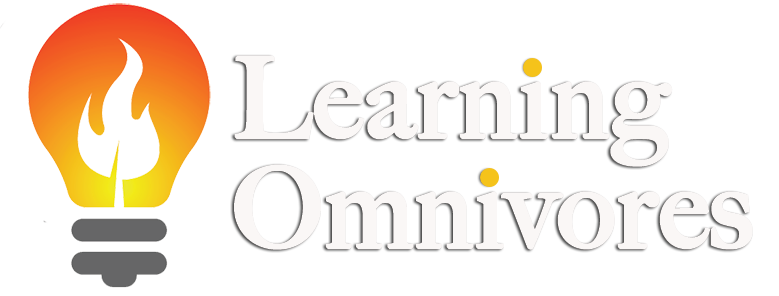3Es
3 Es: Education, Experience, Execution
“Knowledge is Important
AND Insufficient”
Education. Learning is important. The more basic information we have stored in our brains and accessible, the quicker we can use that information to make decisions. Storing that information requires memory hooks, acronyms, metaphors, and stories to make recall easier. Long-term memory and the ability to retrieve information is helpful when facing problems.
Another important element of making decisions is in the procedural memory, having strategies to use the information. Adding heuristics to your skillset provides options to understand and solve issues quicker. The more strategies and the options to manage outcomes gives us flexibility. Trial and error are essential to eliminate strategies that do not work and keep the ones that have produced better results. Read Amy Edmondson’s (2023) book on the Right Kind of Wrong for current research on how to learn from ideas that don’t necessarily have the best results.
Learning from fields outside our primary position, research, and practice is necessary to extend our knowledge base. For example, as an educational leader, having a minor in Industrial Relations opened up a new avenue of learning for me. Yes, education can learn from business. Business can learn from education. Having more options provides more repertoire to choose from in solving challenges. Learning really is a both/and, not an insulated research base with a finite number of staff, students, leaders, etc. See Barry Johnson’s work (1992) Polarity Management as well as the book AND (2020) for processes when two good options are interdependent and ongoing.
Traveling and talking to other cultures has always added to my repertoire and perspective. Talking to students, staff, and community representing diverse cultures increases my understanding. One size doesn’t fit all.
”Anyone who has had a bull by the tail
knows five or six things more than someone who hasn’t.”
Mark Twain
Quote in Frank Wagner’s book
Power of Total Commitment
Experience. Adding context and experience to the basic information is helpful. This is where we can multiply the positive effects of the knowledge we currently have. Not everything can be transferrable. A great idea in Boston may not work as well in Albuquerque. At the same time some of the strategies might be transferrable to new contexts and communities. The more options we have, the more influence we have in the situation. My experience says one size fits one. Take the learning, adapt what you can, and try it out.
Whether working in a system for a while or joining a new organization I strongly suggest reading Stan Slap (2010) ‘Bury My Heart in Conference Room B.’ The values exercise, stories, and practical experiences will serve as great guide. Each leader must know his/her values that will keep you standing up when the winds of change or hurricanes come.
“You Do Not Get Better Without Follow-Up”
Ed Koch
Former mayor of NYC
Execution. The above quote is in Marshall Goldsmith’s (2007) book and reiterates what Joyce and Showers (1992 & 3 editions) have published in educational research. Without follow up, not much changes. Learning and coaching are only as effective as the active use of ideas and processes. Several professional development studies have confirmed that without follow up, an idea becomes entertainment and doesn’t change behavior.
Stan Slap (2015) also wrote a book called ‘Under the Hood. A short summary for both of Stan’s book can be found on Learningomnivores.com under resources – What We’re Reading. The focus of his second book is the culture that unleashes the best potential of the employees. Stan not only puts his values into practice but helps other organizations maximize their learning cultures.
Coaching, whether individually or in groups, supports implementation. If you don’t try it, how do you know any idea works in your environment?
“Run the Experiment”
Richard Sheridan
CEO, Menlo Innovations
Sheridan’s process of “Hey Menlo” is one of the best PLCs transferring information and experience that I have witnessed. Psychological Safety that Amy Edmondson writes about in Teaming (2012) and Fearless Organizations (2019) are absolutely important to create a culture of learning and sharing.
Final Thoughts:
- Learn as much as you can, from anyone who has good ideas, and anywhere preferably in different locales and cultures. You get to synthesize the information.
- Learn from those with experience in various contexts. As Isaac Newton said, ‘we all stand on the shoulders of giants.’ Eleanor Roosevelt said, and I paraphrase, ‘learn from the mistakes of others, you can’t possible live long enough to do it all yourself.’
- Learn to ‘do it’ and see what happens. Feedback provides data. Marshall Goldsmith coined the term “FeedForward.” The real question is what are going to ‘DO’ next with the information, feedback, and new ideas?
I close with my favorite quote from Angeles Arrien, who has since passed.
“If you job is waking up the dead
GET UP, TODAY IS A WORKDAY”
References:
Edmondson, Amy. (2012). Teaming. San Francisco: Jossey-Bass
Edmondson, Amy. (2019). The Fearless Organization. Hoboken, NJ: John Wiley & Sons
Edmondson, Amy. (2023). Right Kind of Wrong: The Science of Failing Well.
New York: Atria
Goldsmith, M. (2007). What got you here won’t get you there. New York: Hyperion
Johnson, Barry. (1992). Polarity management. Amherst, MA: HRD Press, Inc.
Johnson, Barry. (2020). And: Making a Difference by Leveraging Polarity, Paradox or Dilemma. Volume One. Sacramento, CA: Polarity Partnerships.
Joyce, Bruce & Showers, Beverly. (1992, 2002). Student achievement through staff development. (3rd ed.) Alexandria, VA: ASCD.
Sheridan, Richard. (2013). Joy, Inc. New York: Penguin
Sheridan, Richard. (2018). Chief Joy Officer. New York: Portfolio/Penguin
Slap, Stan. (2010). Bury My Heart at Conference Room B. New York: Penguin.
Slap, Stan. (2015). Under the Hood. New York: Penguin.
Wagner, Frank. (2015). The Power of Total Commitment. SCC Marshall Goldsmith
